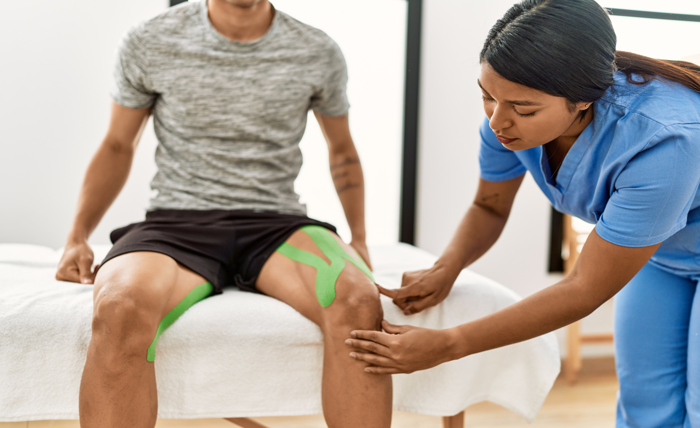Recovering from a sports injury can feel frustrating and overwhelming. However, with the right recovery strategy, you can regain strength and confidence to return to your favorite activities. A complete recovery plan focuses on healing both the body and mind to ensure you fully recover and prevent future injuries.
If you’re wondering where to start, this guide will walk you through detailed steps to create an effective and structured recovery plan
Seek Professional Evaluation and Treatment
The first step in recovering from a sports injury is seeking professional evaluation from a qualified clinic. Proper diagnosis is crucial to addressing the root of the issue and preventing long-term complications. Visiting a sports injury treatment clinic, like Active Spine & Joint, can provide you with advanced diagnostic tools and personalized treatment plans to get on the right track.
Experts at such clinics know how to tailor treatments specific to your injury, offering everything from manual therapy to advanced imaging if necessary. Early intervention is key to speeding up recovery and avoiding chronic issues, so don’t hesitate to seek help from a sports injury specialist.
Focus on Rest and Protection
Giving your body adequate rest is critical during the initial phase of recovery. Resting helps to reduce swelling, manage pain, and prevent further damage. Keeping the injured area protected with braces, splints, or other supportive devices ensures the injury does not worsen during daily movements.
Following the recommendations of your healthcare provider for rest and activity modification is essential during this period. Ignore the urge to push through pain, as doing so can only delay recovery.
Begin a Tailored Rehabilitation Program
Rehabilitation is a vital part of any recovery plan and focuses on helping you slowly regain functionality. Sports rehabilitation services, such as those offered by Carr Physical Therapy and Sports Performance, provide a structured approach to healing. These sessions include exercises targeting strength, balance, flexibility, and coordination.
Working with a team of rehabilitation specialists ensures that your plan evolves as you progress, meeting your unique needs and physical demands. Regular check-ins with professionals help track outcomes while adjusting programs to avoid setbacks.
Prioritize Nutrition and Hydration
Nutrition plays a major role in how quickly your body heals from an injury. Incorporate foods rich in protein, vitamins C and D, and omega-3 fatty acids into your meals, as they support tissue repair and reduce inflammation.
Staying hydrated is just as important, as hydration helps maintain muscle function and aids in recovery. Avoid heavily processed or sugar-laden foods that might slow down the recovery process. A dietitian can guide you in planning meals to maximize your recovery efforts.
Address Mental Health and Motivation
Recovering from a sports injury isn’t just physical—it takes a mental toll, too. Feelings of frustration, isolation, or impatience are common. Staying positive and motivated is an important part of the healing process.
Practice mindfulness, visualization, or breathing exercises to maintain focus and reduce stress. Surround yourself with supportive teammates, family, or community groups that understand what you’re going through. Remember that mental well-being fuels physical recovery.
Transition Back into Sports Safely
Rushing back into sports too soon can endanger your progress. Gradually reintegrating into your sport is the final key step of recovery. Your healthcare provider or sports therapist will guide you through training drills, agility exercises, and conditioning tailored to your sport.
Start at a lower intensity and give your body time to reacclimate to the physical demands. Always listen to your body and communicate with professionals if you experience discomfort or setbacks.
A well-rounded recovery plan ensures you’re properly supported every step of the way. Recovery may take time, but following these steps will help you get stronger one day at a time. If you’re not sure where to start your recovery, seek care from trusted experts.
Set yourself up to not only heal but thrive as you return stronger than before. Now is the time to take that first step toward recovery!


